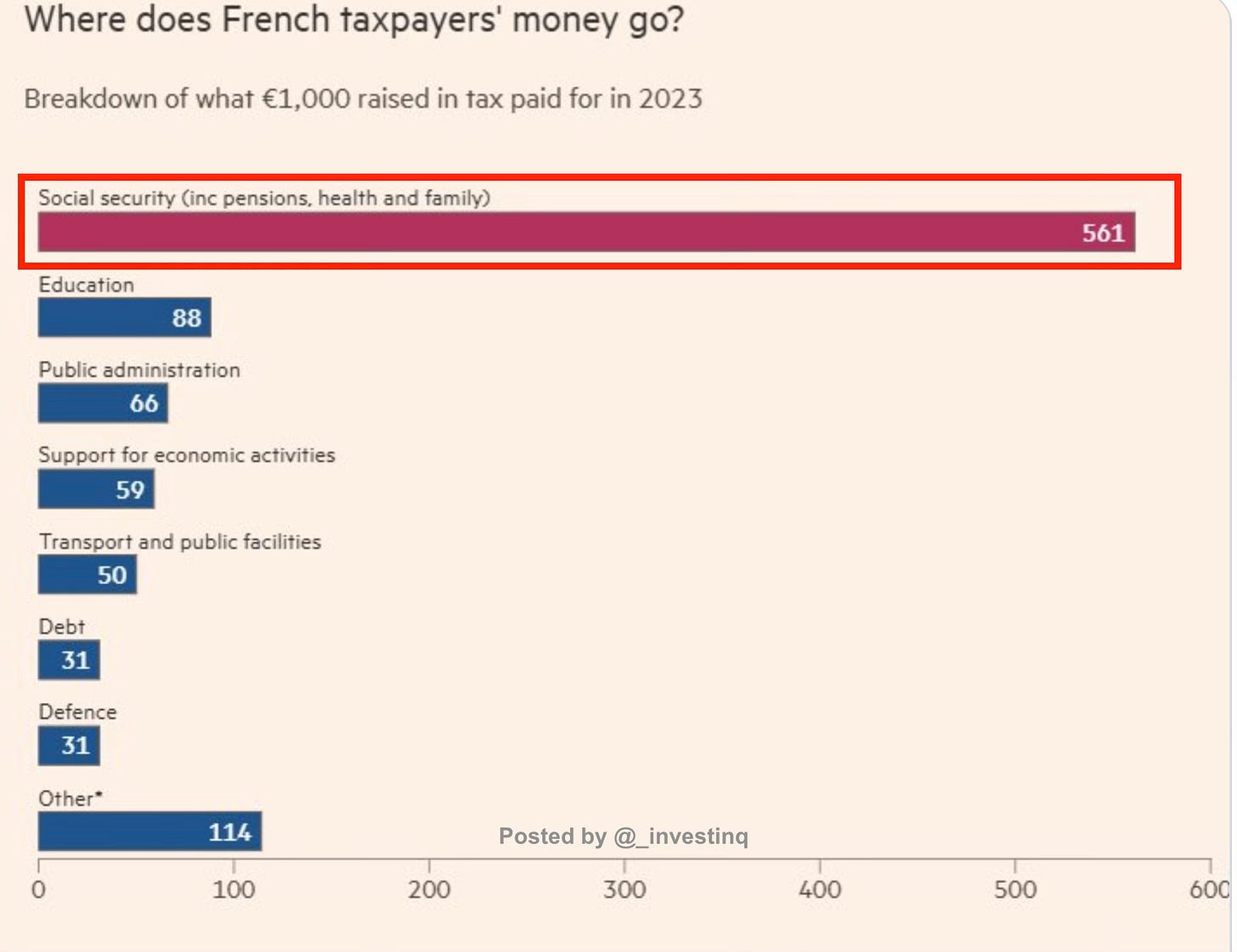France’s Welfare State Is Breaking the Bank
France is in the spotlight right now for all the wrong reasons. The country has one of the highest debts in Europe, its deficit is way above the EU’s limit, and its politics are a mess. If you want to understand why, just look at where tax money goes. Out of every €1,000 the government collects, more than half is spent on social security, things like pensions, health care, and family benefits. Education, defense, infrastructure, and everything else take up much smaller slices.
This setup has deep roots. After World War II, France built one of the world’s most generous welfare systems. It promised people financial security from birth to retirement. Over the years, governments expanded these benefits, and cutting them back became politically impossible. They’re now seen as part of the French way of life. Any leader who tries to scale them down faces strikes, street protests, or even collapse in parliament.
The problem is that costs keep rising while money coming in has not kept up. France’s population is aging, which means more retirees collecting pensions and higher health care expenses. At the same time, the economy has been growing slowly, so tax revenue isn’t enough to cover the bills. Macron’s tax cuts since 2017 made things worse by shrinking what the government collects. In 2023 alone, tax cuts left a €62 billion gap.
Because of this, France has been running large deficits for years. Debt has ballooned to 116 percent of the economy, the highest in the Eurozone. The annual deficit is close to 6 percent, double the European Union’s target. Credit rating agencies have taken notice, downgrading France and raising its borrowing costs. That means it’s getting more expensive for the government to finance its debt, putting even more pressure on the budget.
And then there’s politics. Macron has already gone through four prime ministers in his second term because attempts to cut spending or reform pensions keep triggering political crises. The far-left and far-right both oppose austerity, while the center struggles to push reforms through. Every attempt ends with backlash in the streets or deadlock in parliament.
This is why France is now called Europe’s fiscal problem child. It has locked itself into a system that is too generous to afford but too popular to change. Leaders know the debt cannot keep rising forever, but the moment they propose cuts, the country erupts.
The stakes go beyond France. As one of Europe’s largest economies, its fiscal troubles can affect the whole Eurozone. Higher French borrowing costs can ripple into other countries, and political instability in Paris raises doubts about Europe’s ability to enforce budget rules. What’s happening in France isn’t just a national story, it’s a European one.



Don't Let Me Down, don’t let me down… 🎶
— other European Countries.